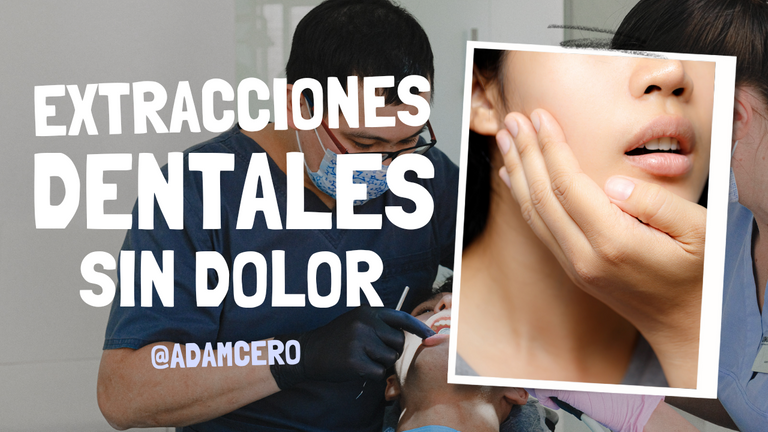
Saludos, comunidad. hoy voy a hablarles de un tema que a los pacientes le suele causar traumas. Las extracciones dentales son el principal motivo por el cual los pacientes tienden a sentir miedo y nervio al venir al odontólogo. Mucho de estos casos traumáticos suceden cuando el paciente es niño, afectandolos de por vida. Las extracciones dentales son considerada cirugías dentro de nuestra profesión, por lo tanto son procesos complejos que necesitan mucha atención.
Greetings, community. Today I am going to talk to you about a topic that patients often find traumatic. Dental extractions are the main reason why patients tend to feel fear and nervousness when coming to the dentist. Many of these traumatic cases happen when the patient is a child, affecting them for life. Dental extractions are considered surgeries within our profession, therefore they are complex processes that need a lot of attention.
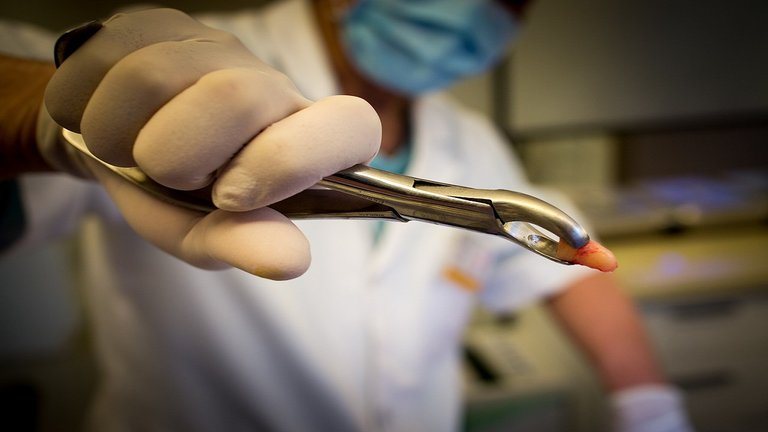
Como odontólogo recomiendo que pacientes, ya sean niños o adultos, tengan una cita previa de adaptación para disminuir los nervios, ya que al momento de realizar una cirugía, muchas veces el anestésico no hace el efecto deseado hasta que el paciente no disminuya sus nervios, actuando como bloqueo para que la anestesia no logre su fin de dormir todo los nervios bucales. Los pacientes nerviosos exageran el dolor hasta dos veces más de lo que de está realizando, por eso es muy importante que el paciente se sienta en una zona segura y en confianza con el odontólogo.
As a dentist I recommend that patients, whether children or adults, have a previous adaptation appointment to reduce the nerves, since at the time of surgery, many times the anesthetic does not have the desired effect until the patient does not reduce their nerves, acting as a blockade so that the anesthesia does not achieve its purpose of sleeping all the oral nerves. Nervous patients exaggerate the pain up to two times more than what is being performed, so it is very important that the patient feels in a safe zone and in confidence with the dentist.
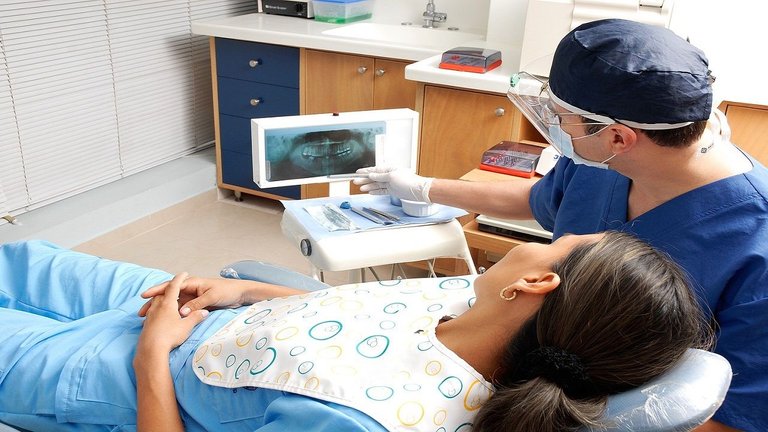
Preparación del paciente
Mi recomendación es que el paciente se prepare psicológicamente días antes de la extracción. El día de la cirugía debe de estar tranquilo, practicar la meditación; eso ayudará a que todo sea mas rápido. Las extracciones dentarias han evolucionado mucho en los últimos años, llegando a ser mucho menos traumáticas que hace 30 años. En la actualidad existen muchos especialistas que pueden hasta llegar a realizar una extracción sin ningún tipo de dolor.
En boca existen distintos tipos de dientes, los monoradiculares y multiradiculares. Su nivel de dificultad aumenta mientras más sea el número de raices, al igual que la recuperación post quirúrgica es más rápida en dientes de una sola raíz. Los multiradicularez necesitan más cuidado al terminar la extracción, Ya que al ser una cavidad más grande se corre más riesgo de que algún alimento o bacteria se aloje en la cavidad dónde se encontraba el diente.
Es por esto que el paciente debe cuidarse los días posteriores a la cirugía, ya que si algún resto de alimento entra, se deberá abrir y limpiar nuevamente. este proceso suele ser dolorzo para el paciente y corre riesgo de infección.
Patient preparation
My recommendation is that the patient should prepare himself psychologically days before the extraction. On the day of the surgery he/she should be calm, practice meditation; this will help everything go faster. Tooth extractions have evolved a lot in recent years, becoming much less traumatic than 30 years ago. Nowadays there are many specialists who can even perform an extraction without any kind of pain.
In the mouth there are different types of teeth, the monoradicular and multiradicular. Their level of difficulty increases the more the number of roots, as well as the post-surgical recovery is faster in single root teeth. Multiradicularez need more care at the end of the extraction, since being a larger cavity there is more risk that some food or bacteria is housed in the cavity where the tooth was.
This is why the patient must be careful the days after the surgery, because if any food enters, it must be opened and cleaned again. This process is usually painful for the patient and there is a risk of infection.
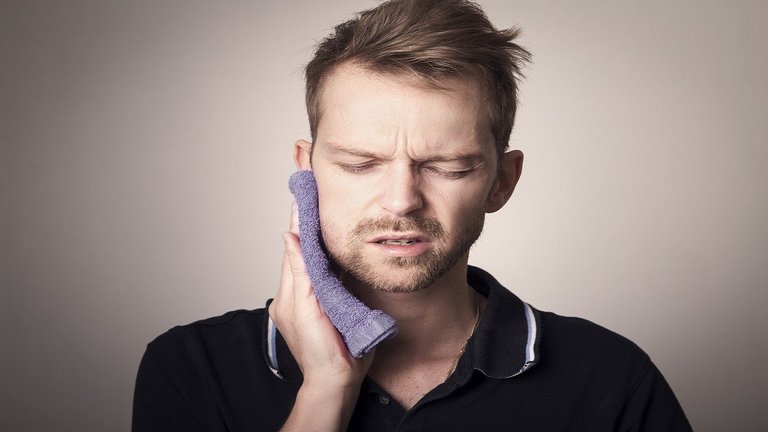
¿Se debe tomar antibióticos en una cirugía ?
No en todo los casos, solo cuando se está presente un proceso infeccioso a nivel del apice, que se deba eliminar. este suele causar dolor y crear una masa debajo del diente. Muchos pacientes pueden tener sintomatologia y no ser una infección, es por eso que es de suma importancia que se dirigía al odontólogo para una buena medicacion, ya que el consumo de antibióticos sin indicarlo por el especialista es fatal para el cuerpo humano, porque puede ocasionar que se forme una resistencia al medicamento.
Recomendaciones post- quirúrgicas
Una de las recomendaciones es que el paciente tome tratamiento analgésico, más no desinflamatorio, debido a que la inflamación es la que acelera los procesos cicatrizales.
La buena higiene bucal es importante para que la herida se mantenga limpia y pueda cicatrizar más rápido. Es necesario el uso de enjuague bucal, para reforzar la higiene. Gracias a todos espero haberlos ayudado ¡hasta la próxima!
¿Should antibiotics be taken during surgery?
Not in all cases, only when an infectious process is present at the level of the apex, which must be removed. This usually causes pain and create a mass under the tooth. Many patients may have symptoms and not be an infection, that is why it is of utmost importance to go to the dentist for a good medication, since the consumption of antibiotics without indicating it by the specialist is fatal to the human body, because it can cause the formation of a resistance to the drug.
Post-surgical recommendations
One of the recommendations is that the patient should take analgesic treatment, but not anti-inflammatory, because inflammation is what accelerates the scarring process.
Good oral hygiene is important for the wound to remain clean and heal faster. It is necessary to use mouthwash to reinforce hygiene. Thank you all, I hope I have helped you until the next time.
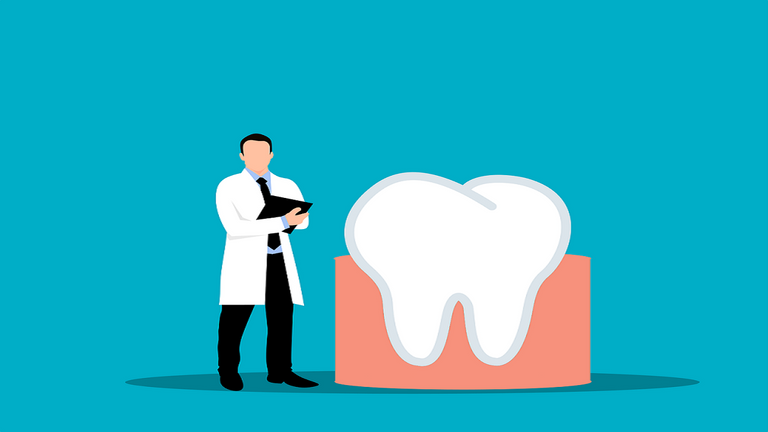

- La portada de esta publicación fue realizada en canva en su versión gratuita.
The cover of this publication was made in canva in its free version.
- El texto ha sido traducido por Deepl en su versión gratuita
The text has been translated by Deepl in its free version
Congratulations @adamcero! You have completed the following achievement on the Hive blockchain and have been rewarded with new badge(s):
Your next payout target is 50 HP.
The unit is Hive Power equivalent because post and comment rewards can be split into HP and HBD
You can view your badges on your board and compare yourself to others in the Ranking
If you no longer want to receive notifications, reply to this comment with the word
STOPTo support your work, I also upvoted your post!
Check out the last post from @hivebuzz:
Support the HiveBuzz project. Vote for our proposal!